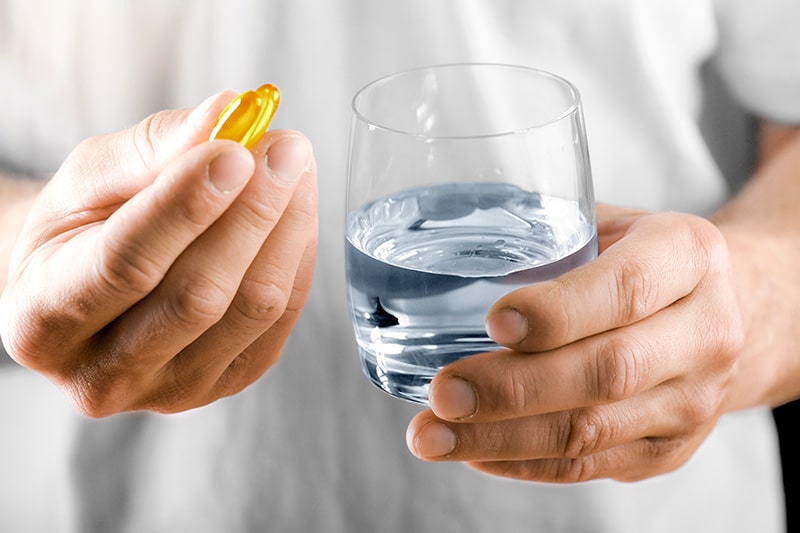Premature ejaculation (PE) is a common sexual issue that affects many men. The following strategies may help to manage PE:
Kegels exercises:
These help strengthen the muscles that control ejaculation and can improve control over ejaculation.
Kegel exercises are a type of exercise that can help strengthen the pelvic floor muscles in men. The pelvic floor muscles support the bladder and bowel, and can affect sexual function. Strengthening these muscles through Kegel exercises can lead to improved bladder control and sexual performance, as well as reduced risk of pelvic floor problems.
To perform Kegel exercises, you need to first identify and isolate your pelvic floor muscles. This can be done by stopping and starting the flow of urine while using the bathroom. Once you have identified these muscles, you can do Kegel exercises by contracting and relaxing these muscles repeatedly for several repetitions, holding each contraction for a few seconds. It is important to avoid using your abdominal, leg, or buttock muscles while doing Kegel exercises.
Kegel exercises can be done anytime and anywhere, and can be performed while sitting, standing, or lying down. It's important to perform Kegel exercises regularly, and to gradually increase the intensity and duration of the exercises as your muscles get stronger. It may take several weeks or months to see the results of Kegel exercises, but with consistent effort and patience, you should see an improvement in your pelvic floor muscle strength over time.
It's always a good idea to talk to your doctor before starting any new exercise program, especially if you have any underlying medical conditions that may be affected by pelvic floor exercises.
Masturbation:
Masturbating before sexual activity can help reduce sensitivity and delay ejaculation.
Masturbating before sexual activity can help reduce sensitivity and delay ejaculation for some people. When a person ejaculates through masturbation, they may experience a decrease in sensitivity and sexual arousal, which can result in a longer sexual experience during intercourse. This is because the body has already had an orgasm, and the subsequent sexual stimulation may not be as intense.
However, it's important to note that this effect may vary from person to person, and what works for one individual may not work for another. Some people may find that masturbating before sexual activity decreases their overall sexual experience, while others may find that it improves it.
In addition, there are other techniques and exercises that can help delay ejaculation, such as practicing mindfulness and relaxation during sexual activity, using thicker condoms, and engaging in sexual positions that are less stimulating. Talking to a sex therapist or counselor can also be helpful in exploring different techniques and finding what works best for you.
Ultimately, the most important thing is to find what works for you and to communicate openly with your partner about your sexual experiences and preferences.
Behavioral therapy:
This involves techniques to help you delay ejaculation, such as the "squeeze technique," in which you or your partner squeeze the tip of the penis for a few seconds to decrease arousal.
Behavioral therapy is a type of therapy that can help individuals overcome sexual dysfunctions, including premature ejaculation. Behavioral therapy for premature ejaculation typically involves teaching the individual techniques for controlling and delaying ejaculation, as well as addressing any psychological or relationship factors that may be contributing to the problem.
One common technique used in behavioral therapy for premature ejaculation is the "squeeze" technique. This involves applying pressure to the head of the penis just before ejaculation to temporarily reduce sensitivity and delay orgasm. The therapist may also teach the individual pelvic floor muscle exercises, such as Kegel exercises, to help improve control over the muscles involved in ejaculation.
In addition to these physical techniques, behavioral therapy may also address psychological factors, such as anxiety, stress, or relationship problems, that may be contributing to premature ejaculation. The therapist may use cognitive-behavioral therapy (CBT) to help the individual identify and change negative thought patterns and behavior patterns related to sex and ejaculation.
Behavioral therapy for premature ejaculation can be very effective, especially when combined with other treatments, such as medication or counseling. However, it may take time and effort to see improvement, and it's important to be patient and consistent with the techniques and exercises taught by the therapist.
It's important to talk to your doctor or a qualified mental health professional before starting any type of therapy for premature ejaculation. They can help you determine the best course of treatment for your specific needs and circumstances.
Medication:
Antidepressants such as dapoxetine, or topical anesthetics applied to the penis, can help to delay ejaculation.
Medication can be a helpful option for individuals who are experiencing premature ejaculation and are looking for ways to delay ejaculation. There are several types of medication that are commonly used for this purpose, including:
1. Selective serotonin reuptake inhibitors (SSRIs): SSRIs are commonly used antidepressant medications that can also be used to treat premature ejaculation by delaying orgasm. Some common SSRIs used for this purpose include dapoxetine, paroxetine, and fluoxetine.
2. Local anesthetics: Local anesthetics, such as lidocaine or prilocaine, can be applied to the head of the penis to temporarily reduce sensitivity and delay ejaculation.
3. Tramadol: Tramadol is a prescription pain medication that can also be used to treat premature ejaculation by delaying orgasm.
It's important to note that these medications can have side effects and may not be suitable for everyone. For example, individuals with heart problems, high blood pressure, or liver or kidney disease may not be able to take these medications. It's also important to talk to your doctor about any other medications you are taking, as some medications can interact with these treatments.
Medication alone may not be enough to treat premature ejaculation, and it's often most effective when used in combination with behavioral therapy and other treatments, such as counseling or pelvic floor muscle exercises.
Your doctor can help you determine if medication is the right option for you, and which medication may be best suited to your needs and circumstances.
Lifestyle changes:
Reducing stress, getting enough sleep, and eating a healthy diet can help improve sexual function and reduce the likelihood of PE.
There are several lifestyle changes that can help individuals delay ejaculation and improve sexual function:
Exercise: Regular physical activity can help improve cardiovascular health, reduce stress, and increase endurance, which can be helpful in delaying ejaculation.
Sleep: Getting enough quality sleep is important for overall health and can help reduce stress and fatigue, which can affect sexual performance.
Healthy diet: Eating a healthy diet that is rich in fruits, vegetables, whole grains, and lean protein can help improve energy levels and support overall health.
Stress management: Stress can affect sexual function, so finding ways to manage stress, such as through mindfulness, meditation, or exercise, can be helpful in delaying ejaculation.
Reduce alcohol and drug use: Alcohol and drugs can affect sexual performance and lead to premature ejaculation. Limiting or avoiding alcohol and drugs can help improve sexual function.
Communication: Open and honest communication with your partner can help reduce anxiety and improve sexual experiences. Talking about your needs and desires can also help you both feel more comfortable and relaxed during sexual activity.
Pelvic floor muscle exercises: Kegel exercises can help strengthen the muscles involved in ejaculation, improve control over ejaculation, and delay ejaculation.
It's important to note that these lifestyle changes may take time to have an effect, and it's important to be patient and consistent with the changes you make. It's also important to talk to your doctor if you are experiencing any symptoms or difficulties with sexual function, as they may be related to an underlying health condition that requires medical treatment.
Conclusion
Consulting with a healthcare provider or a sexual health specialist can help determine the best approach for you, as underlying medical conditions or psychological issues may contribute to PE.





